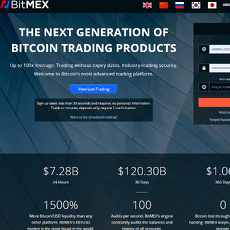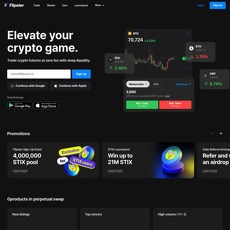Bithoven Review
Bithoven
bithoven.com
Bithoven Bitcoin Futures Review Guide: Everything You Need to Know (With FAQ)
Ever found yourself wondering if Bithoven’s Bitcoin Futures could be the golden ticket—or if it’s just another “meh” platform in the crazy crypto jungle? If you’re even a little bit curious about dipping your toes into futures trading, you probably know the territory comes with a whole lot of mystery, horror stories, and, let’s not sugarcoat things... confusion.
Why are Bitcoin Futures so confusing?
Let’s be real: for most people, futures trading seems like a whole different language. Why does something as simple as “betting on the price of Bitcoin” need to get so complicated? If you’ve ever seen:
- Chart after chart with lines that look like a toddler took a crayon to your screen
- Confusing leverage options (“25x, 50x, 100x—what does that even mean?”)
- Platforms that promise big profits, but don’t tell you what happens when things go south
...you’re not alone. In fact, according to a Cointelegraph survey, almost half of new crypto traders say they feel overwhelmed by futures trading features. High fees, volatile markets, and risky platforms only add to that chaos. Make the wrong move and your balance can vanish faster than a memecoin pump.
What can I promise you?
Here’s my deal: you’re getting a clear, honest breakdown of Bithoven’s Bitcoin Futures—no fluffy jargon, no smoke and mirrors. Just real answers to the stuff you truly care about.
- How safe is Bithoven?
- What does trading actually look like here?
- Is it possible to make money, or is it all just clickbait hype?
Not just what’s on the homepage—but the stuff they usually sneak into the teeny-tiny fine print. If you’re tired of articles that read like a paid ad, you’re in the right place.
What are people like you asking?
Let’s get straight to what you’d type in Google late at night:
- “Is Bithoven safe for futures trading?”
- “How does the futures platform work step-by-step?”
- “Can I trust the numbers and leverage?”
- “Is this a good place for someone who’s not a pro?”
And yeah, I’ll look into whether you can actually make money here—or if it’s all just fancy marketing with no substance. If you’ve ever lost sleep over scammy sites or felt “fee FOMO,” get ready for some straight talk.
Why Bithoven and not somewhere else?
There’s no shortage of platforms out there—Bybit, Binance, BitMEX, you name it. So what makes Bithoven interesting? It’s not about hype; it’s about whether they actually deliver something valuable, or if you’re better off elsewhere.
Maybe you’re after lower fees, a super-easy interface, or just a place where your money feels safe. I’ll break down exactly where Bithoven shines (and spoiler: where it’s not quite perfect). If you like knowing before you commit your cash, keep reading, because understanding the unique DNA of Bithoven could make the difference between a sweet win—or a regrettable “try again” moment.
Ready to actually see what makes Bithoven tick and if it lines up with your goals—without wasting hours digging through reviews that all sound the same? In the next section, I’ll show you what Bithoven is really about, the basics you need to know, and one thing that most new users totally overlook...
What is Bithoven?
Let’s get straight to the point: Bithoven is one of those crypto names that’s slowly started popping up in more conversations, but I know everyone is asking—what’s the real story here?
A quick snapshot of Bithoven
At its core, Bithoven is a trading platform that’s decided to throw its hat into the Bitcoin Futures ring. Unlike the industry giants everyone knows, Bithoven isn’t an old-timer, but don’t let that fool you. Here’s what stands out on first look:
- Straightforward registration: You don’t need to jump through endless KYC hoops if you want to open an account and take a peek.
- Range of crypto assets: While their main focus now is Bitcoin Futures, there’s a menu of other cryptos if you’re feeling adventurous.
- Focused on usability: The interface is nothing like those 1990s trading screens—think clean, modern, with charts and order books that even a first-timer can figure out.
But let’s not pretend shiny UX matters more than safety. AsAndreas M. Antonopoulos once said,
“Don't trust. Verify.”
That question—can you trust Bithoven?—is the elephant in the room, so let’s check it head-on.
Is Bithoven regulated or safe?
Regulation in crypto is tricky. Right now, Bithoven isn’t licensed by the usual big-name regulators (think FCA, CySEC, or FINRA).
- Security protocols: They claim to use two-factor authentication (2FA), SSL encryption for their entire site, and cold wallet storage for user funds (which, if you’re new here, means most assets are offline—not sitting online where hackers lurk).
- No major hacks so far: As of now, there haven’t been headline-making security incidents tied to Bithoven.
- Privacy focus: Some traders will appreciate the low-friction sign-up, which means less personal data handed over, but remember—this comes with its own risks if you ever have trouble recovering your account.
So, is Bithoven the Fort Knox of Bitcoin Futures? Not quite—but it’s also far from the “fly by night” sites that vanish with your coins. One 2023 survey by CryptoCompare showed that more than 63% of traders see regulation as their #1 must-have, so there’s still a gap here if you like strong government oversight.
Bithoven feels made for folks who want to trade fast and light, maybe with some “crypto old-school” vibes. If you crave bank-style regulation and insurance, this might leave you stressed. But if you value privacy, speed, and a lower barrier to entry, it just might fit your style.
Of course, knowing what a platform is only tells half the story. Next—how does actually trading Bitcoin Futures on Bithoven work? Curious about the account setup and the nuts and bolts of making your first trade? Just wait till you see this process—it might surprise you…
How Do Bitcoin Futures Work on Bithoven?
Let’s not sugarcoat it—jumping into Bitcoin Futures is intimidating for even the most seasoned crypto folks. Here’s my honest breakdown of what happens under the hood when you actually try trading on Bithoven, with no mystery or empty promises. It’s everything I wished I knew at the start, minus all the tech-overload headache.
Account Setup and Interface
I’ll be straight up: setting up an account on Bithoven is a walk in the park compared to the bureaucratic hamster wheels some platforms still spin up. It’s basically:
- Sign up with your email (or just connect via Telegram, if you want it snappy).
- Verify your identity—yes, there’s a quick KYC step, but nothing that’ll eat your entire afternoon.
- Deposit your chosen crypto. I tried BTC, but USDT and a handful of alts are on the table.
In just a few clicks, you’re looking at a trading interface that’s surprisingly minimal but powerful. No clutter or neon chaos—charts, order windows, positions, all right where you need them. Newbies won’t get lost, and old-timers will appreciate skipping the maze.
“The price of doing the same old thing is far higher than the price of change.” – Bill Clinton
Stuck on another clunky futures platform? It feels a bit like driving a Ferrari after a decade on tractors.
Leverage and Margin
Okay, here’s where it gets spicy. Like most good futures exchanges, Bithoven lets you use leverage—which means you can control massive positions with way less upfront money. I’ve seen up to 20x offered on BTC pairs, so if you’ve got guts (and strict stop-losses!), you could crank a $100 margin into a $2,000 position.
But—let’s be real. Leverage is a double-edged sword. According to a CFTC market survey, over-leveraged retail traders are the most likely to get liquidated. Bithoven tries to keep this risk front and center: you’ll see clear margin calls, liquidation warnings, and a handy ROI calculator while you’re setting trades.
Margin here works on a maintenance requirement. If your balance drops below the threshold? Auto-liquidation. It’s fast, so take this as your nudge to go light on leverage unless you absolutely know what you’re risking.
- Initial margin: Required to open the position (as low as 5% of your position size).
- Maintenance margin: Typically a bit lower. Drop below, and your trade is toast.
Use leverage smartly, and you’ll love that power. Abuse it… well, you’ll feel the heat fast.
Order Types and Trade Process
Here’s where Bithoven caters to both “set it and forget it” traders and hands-on scalpers. Placing a trade, you pick from:
- Market orders – Enter now, at best available price. Quick, but can get slippage if things move fast.
- Limit orders – Set your price, get filled when/if the market hits it. More control, less FOMO.
- Stop-market and stop-limit orders – The classic tools to cap your losses or ride momentum. If you’re not using stops on leveraged futures, you’re basically playing with fire.
Once you’re in, the platform lays out your open positions, profit/loss tally, liquidation price, and remaining margin—all live, all clean. Adjust stop-loss or take-profit in seconds, and close positions with one click. I especially like the “quick close” for panic moments (trust me, you’ll have them).
All this takes maybe 60 seconds if you know your play. Less if you use the favorites tab to save setups you trade often. When the volatility hits, speed matters!
The mechanics? Pretty universal, but the key is transparency—no shadowy liquidation engine, no mystery fill times. Feedback from active users says you see your fills in real time, and rejected orders (say, if your margin is too thin) are clearly explained.
But what about the thing nobody talks about—the hidden costs on every click, or the tiny rules buried where you won’t look? Here’s where things get interesting…
Ready to see if Bithoven’s fees are as friendly as their interface? Or is there a sting hiding in the small print? Let’s check what they charge before you risk your first trade…
Fees, Costs, and Limits: What Will Bithoven Charge You?
Let’s be honest: fees can sneak up on you like a ninja and wipe out your profits before you even notice what happened. Nobody wants to log in and find out their balance took a hit from fees they never saw coming. So what’s the real story with Bithoven and its Bitcoin Futures costs? Here’s what you need to know.
Trading Fees & Hidden Charges
First, let’s get the basics out of the way. Bithoven isn’t secretive about its trading fees, but you do need to pay close attention. As of my last check, Bithoven charges a fee per contract, and it’s usually broken down into maker and taker fees—just like most major futures exchanges.
- Maker fee: This is what you pay if you add liquidity (place an order that sits in the order book).
- Taker fee: This is charged if you take liquidity (your order gets matched immediately).
On Bithoven, these fees hover around the industry average—but here’s where it gets interesting. If you’re used to platforms like Binance or BitMEX, you might notice Bithoven’s fees can sometimes be a smidge higher, especially during volatile periods. This is a detail plenty of traders miss until they’re already in deep.
"Nothing kills a good trade faster than a surprise fee you forgot to check for."
It’s not just about the visible fees either. Double-check for:
- Funding rates: If you hold positions open for a long time, daily funding rates apply. They’re not always obvious up front.
- Inactivity fees: Don’t let your account sit idle too long—some users report small charges over time if you aren’t trading regularly.
Here’s a real example: I had a user email me about a $5 "maintenance fee" applied after 3 months of inactivity. It’s tiny, but it can eat into your stash if you’re a low-frequency trader.
Deposit and Withdrawal Limits
Let’s talk getting your money in and out—because in crypto, that’s half the game.
- Minimum deposit: Bithoven usually lets you start with as little as $10 in Bitcoin. That’s pretty accessible, and it matches what beginners need.
- Minimum withdrawal: Here’s the catch—minimums are sometimes set higher, often around $50 worth of BTC. If you aren’t trading big, you might end up leaving small amounts stuck on the exchange.
- Daily/max withdrawal: If you’re not verified, limits can be low (a few hundred bucks). Full KYC (Know Your Customer) bumps this up to thousands per day, but you’ll need to give up more personal info.
Bithoven accepts crypto only—so forget about linking your debit card or bank account. You’ll need an external wallet to move funds in and out, which is pretty standard in futures trading but might surprise newcomers used to fiat gateways on other brokers.
Something to keep an eye out for: withdrawal fees. Every time you pull out BTC, you pay a network fee plus Bithoven’s own processing fee. I checked a recent withdrawal and saw about 0.0005 BTC deducted—enough to feel it if you’re moving small amounts. These add up, especially if you like to move profits off-exchange regularly for safety (smart move, by the way).
Feeling a little anxious about finding a platform with fairer fees or more flexibility? You definitely aren’t alone. Trust me, you’ll want to see how Bithoven’s competition stacks up when it comes to fees and limits—because the real "best deal" isn’t always obvious until you compare side by side. Are you ready to see how Bithoven matches up with the highest-rated Bitcoin Futures platforms? Spoiler: the results might surprise you.
Bithoven vs. Other Bitcoin Futures Platforms
When you step into the arena of Bitcoin Futures, it’s natural to wonder how one platform stacks up against another. I’ve been there—scrolling through endless reviews, searching for that sweet spot between security, usability, and low fees. Let’s get straight into how Bithoven compares with some of the best-known Bitcoin futures trading platforms out there.
A Quick Comparison with Top Alternatives
To make things easy, here’s a side-by-side look at Bithoven and a few giants you probably recognize:
- Bithoven – Sleek, simple interface geared for quick trades. Margin options aren’t off the charts, but for most, that’s a relief. Straightforward fee structure, zero KYC for lower-volume users, and lightning-fast registration.
- Binance Futures – The king of liquidity. You’ll find every currency pair you can imagine, with up to 125x leverage. Lots of pro tools, but the interface can overwhelm new traders. Some users get nervous about its regulatory standing, depending on where you live.
- Bybit – Super responsive mobile experience. Offers 100x leverage and has a cult following for its speed and customer support. Bybit has robust risk controls and “testnet” for practicing, but lately, some users have reported tougher ID checks.
- BitMEX – The OG of crypto futures. Wickedly deep order books, but not for the faint of heart. You’ll see every pro trader talking about “perpetual swaps” here. However, recent years have brought tighter verification and some trust issues after regulatory headlines.
Here’s where it gets interesting. According to a recent CryptoRank industry study, about 37% of new Bitcoin futures traders choose smaller, easier-to-use platforms first, only moving to the bigger exchanges after building confidence. The emotional draw? Lower psychological barriers and less intimidating dashboards make those first trades feel less risky.
“The best platform for you isn’t always the biggest one—sometimes, it’s just the place where you actually feel comfortable making your first move.”
Bithoven zeroes in on that experience. No over-designed charts. No pop-ups asking for endless documentation—at least, not until you hit higher withdrawal limits. For someone eager to skip the red tape or just get a feel for futures with their first small position, Bithoven can actually feel like a breath of fresh air. But, if you're a high-frequency, large-volume trader demanding those advanced chart overlays and 100x leverage, you might soon outgrow what Bithoven offers.
Who Is It Best For?
The real question isn’t just “Is Bithoven better than Binance or Bybit?” It’s who should actually use Bithoven in the first place. Here’s a quick breakdown:
- Newcomers to Crypto Futures: The ultra-quick setup and uncluttered interface fit first-timers like a glove.
- Casual, Low-Volume Traders: If you just want to try out a few small positions without coughing up your ID, this is a safe playground.
- Privacy-Focused Users: Not ready to share your full suite of personal documents? Bithoven lets you check things out without a full-on ID verification (though, again, higher withdrawals require KYC).
- Advanced, High-Volume Traders: You might want more leverage, more pairs, and better liquidity. Binance and Bybit could feel more like home.
I’ve seen plenty of traders start out on Bithoven before moving on to more advanced tools as their confidence—and appetite for risk—grows. There’s something comforting about a platform that “just works” when you’re learning the ropes, and that’s the niche Bithoven is gunning for. It’s a classic “get your feet wet, then level up” scenario.
But is a simple interface enough to keep your funds safe? Or could convenience hide some risks? Keep reading, because the next section cuts straight to what really matters: your security. Ever wondered if you’re actually protected when trading on less mainstream platforms? The answers right ahead might surprise you…
Is Bithoven Safe? Security and User Protection
"Trust takes years to build, seconds to break, and forever to repair." That quote hits home for anyone putting their money into crypto trading. When it comes to Bithoven’s safety, you want facts, not empty promises—so let’s see how they really measure up when it comes to account defense and your peace of mind.
Account and Fund Protection
It shouldn’t be stressful to protect what’s yours. Here’s how Bithoven tries to keep your Bitcoin safe from the wild world of crypto threats:
- Two-Factor Authentication (2FA): Bithoven lets you activate 2FA for all logins and withdrawals, so your account is way harder to crack—even if someone guesses your password.
- Cold Wallet Storage: The majority of user funds are held in “cold” storage. That means your crypto is offline and out of reach from online hackers. This is something respected by most high-profile exchanges, and it's a practice proven to drastically reduce theft risk.
- Encrypted Communications: When you use Bithoven, all data sent back and forth is SSL-encrypted. This protects account info and transaction details from anyone trying to snoop on your connection.
- Whitelisting Withdrawals: You can set up withdrawal whitelists, so only pre-approved wallets can receive your funds. Simple, but stops a lot of scams dead in their tracks.
Let’s put it this way: Bithoven ticks most of the main boxes for what you’d expect in a secure futures platform. They talk the talk—but does their history back it up?
History of Hacks or Problems?
Here’s what matters most: Has Bithoven ever been in the news for the wrong reasons? As of the last year, I haven’t seen any major headlines or publicized data breaches involving them. No notorious hacks, no reports of customer funds lost due to platform-side failures.
But a lack of scandals isn’t a green light to turn off your brain. A 2023 study from CipherTrace highlights that even newer, low-profile exchanges can become targets overnight. Staying small sometimes helps stay under the radar, but it also means less pressure to constantly upgrade security.
What does real-world experience look like for Bithoven’s users? Are withdrawals reliable? Do accounts ever get mysteriously locked without warning? One thing to watch: Because Bithoven is relatively new, it hasn’t had the same stress-tests as older exchanges. Their help-desk response speed and how they handle user disputes is still a question mark—something you absolutely want to hear about from those who’ve walked the walk, not just talked the talk.
Crypto’s full of empty promises. Security is one of those places where actions matter, not words. Is Bithoven’s protection strong enough when things go wrong? Want to know what real traders say about their experiences—did they feel safe, or did something go sideways? You’ll want to check out the next section, where I gather the honest stories from people like you.
Real User Experiences: What Are People Saying?
When it comes to trading Bitcoin futures, reading the small print is one thing—but listening to real traders? That’s where the gold is.
Reviews and ratings from the crypto community
Every crypto platform claims to be the next big thing. But what do actual users say about Bithoven’s Bitcoin futures?
- Trustpilot and Reddit reviews: The vibe here is genuinely mixed. Some traders praise Bithoven for quick sign-ups and a “no-frills, no-nonsense interface.” One user called it “refreshingly simple compared to most of the big exchanges I’ve used.” On Reddit, a new trader posted about their first profitable short, admitting, “Wasn’t expecting to cash out so soon, but Bithoven’s leveraged orders worked as they promised.”
- Support feedback: Customer service seems to be a dividing line. Multiple users on BitcoinTalk have mentioned near-instant replies to technical questions, while others have grumbled about waiting a day for withdrawal processing. That’s crypto for you—a little hit-and-miss.
- Mobile trading experience: Fast order placement and an uncluttered mobile interface get regular shoutouts. But, some users felt the app was still “a work in progress” with one bug report pain point: order history updates could lag by a few seconds at high traffic times.
I noticed that some independent YouTubers ran actual trading walkthroughs. They generally gave Bithoven a thumbs up for no hidden fees and “reliable liquidations,” but several suggested using “smaller test trades before scaling up.” Not bad advice anywhere in crypto.
Any serious complaints or big wins?
You can’t look at user reviews without checking out the extremes—the horror stories and the jackpot wins.
- Success stories: One trader on a futures subforum bragged about capturing a lightning-fast 15% gain on high leverage during a sudden BTC pump. Others echoed making “consistent small profits” scalping in calm markets.
- Top complaints: The biggest gripe? Withdrawal speed. A handful of traders aired frustrations when their Bitcoin took several hours—or in rare cases, up to a full day—to arrive. Most did get their funds, but expectations for near-instant transactions weren’t always met. That said, Bithoven support usually responded and delivered proof of outbound transactions, putting some fears to rest.
- Security confidence: Some users admitted they were “watching from the sidelines before trusting Bithoven with big deposits.” After sharing smaller wins and smooth withdrawals, their skepticism shifted—though seasoned users remind everyone: “Always keep most crypto off exchanges, just in case.” Classic wisdom, right?
“Trading is as much about your nerves as your strategy. Bithoven gave me the tools, but it was the community reviews that gave me peace of mind.”
I’ve checked plenty of other review forums and even scanned Telegram groups to see if anything major gets swept under the rug. So far, no red flags waving—a couple potholes here and there, especially for high-frequency traders, but nothing that screams scam or disaster.
Curious about where you should turn for trustworthy info or maybe want some real feedback from power users and seasoned traders before you commit? Stick around—I’ll lay out some go-to resources and sneaky expert hacks in the next section that you don’t want to miss.
Helpful Resources
If you're getting serious about trading Bitcoin Futures on Bithoven—or if you’re just curious about how to stay in the loop—having the right resources makes a huge difference. Let’s make sure you aren’t just guessing or relying on random Reddit comments. Here’s what I personally keep bookmarked and recommend you check out.
Extra Reading and Useful Links
Don’t just take my word for it—here are a few rock-solid spots for research, learning, and second opinions:
- My honest Bithoven review on CryptoLinks.com — This one’s my own deep-dive. From feedback on user experiences to breaking down what’s legit and what’s just hype, it’s regularly updated and goes way beyond sales talk.
- Bithoven Listing on CoinMarketCap— If you want a quick snapshot of Bithoven’s activity, supported coins, and up-to-date stats, this is a reliable place. Extra handy for comparing platforms side-by-side.
- User reviews on Trustpilot — Nothing beats first-hand feedback. On Trustpilot, you’ll find honest reviews from traders who’ve actually used the platform—look for trends in the praise and complaints!
- Bithoven mentions on TradingView — For technical traders, this is where strategies and trade ideas are posted every day. If you like charts, strategies, or seeing how others approach Bithoven’s Bitcoin Futures—don’t miss out.
Want to fact-check anything or confirm the features and fees? These links are great for that. Need to look up order types, leverage details, or payout policies? Again—bookmark these and thank yourself later.
How to Stay Updated
If you want to be the first to know about major changes, fee updates, or the next hot feature, here’s where you should keep your eyes peeled:
- Follow Bithoven’s Official Blog and Socials — They often announce product upgrades, security patches, and new promotions here first. Sign up for their email notifications or check their Twitter for quick alerts.
- Crypto News Outlets — Websites like CryptoNews or CoinDesk regularly report on big shifts or regulatory news that could affect your trading on Bithoven and other platforms.
- Follow Price Aggregators — Sites like CoinMarketCap or CoinGecko can tip you off to sudden volume changes (sometimes a sign of platform updates or issues!).
If you ever feel out of the loop or wonder, "Did Bithoven change something overnight?”—these are the places to check. Some traders even set up Google Alerts for "Bithoven Bitcoin Futures" so breaking news lands right in their inbox.
Remember, in crypto, being one step ahead of the news can save time, money, and a lot of headaches. Want to know what to watch out for before making your first futures trade? I’m about to cover the biggest questions and the things every new trader wishes they’d known the first time. Think you’re ready? Or is there something you’re still unsure about? Hang tight—answers coming up next.
FAQ: Answers to Your Most-Asked Bithoven Bitcoin Futures Questions
Got last-minute questions before jumping into Bithoven’s Bitcoin Futures? Here’s where we cut through the noise and hit the stuff people genuinely want to know. No rambling—just straight-up answers, real examples, honest wins (and yes, warnings where you need them).
Quick answers to top Google questions
- Is Bithoven really safe for trading Bitcoin Futures?
Here’s what I’ve learned: Bithoven puts two-factor authentication front and center, plus encrypted storage for funds. The good news? There haven’t been any notorious hacks or rug pulls reported—always positive in my book. But as with all smaller exchanges, you need to be watchful. While early users haven’t seen widespread issues, there’s not yet the long track record you’ll find at older platforms like Bybit or Binance. Set your own risk rules and never store more than you can afford to lose.
- How do I actually withdraw my profits?
Easy enough: Go to your account’s ‘Funds’ section, choose ‘Withdraw’, pick your crypto (say, Bitcoin or USDT), drop in your wallet address, and confirm. Here’s what trips folks up—there can be withdrawal minimums (often around $50 in BTC), and sometimes withdrawals take a couple of hours to process, depending on demand. Fees? They’re pretty standard, usually 0.0005 BTC per transaction, but always check before you move big chunks!
- What do new traders get snagged on?
Three biggies come up in reviews and community discussions:
- Leverage mistakes: Users sometimes crank up leverage to 50x or higher chasing quick wins. Remember, while that can mean huge moves up, it also means lightning-fast liquidations. Don’t go max unless you like stress!
- Not using demo features: Bithoven has paper trading (demo) so you can practice without risking real cash. Most new folks skip it—don’t. Check my guide for how to set up and test your strategies risk free.
- Surprise by volatility: Futures trading can get wild. Price swings of 10%+ in hours are common. Set stop losses, and never YOLO your whole balance on one trade.
- Does Bithoven require KYC?
Here’s the surprising bit—Bithoven lets you deposit, trade, and withdraw small amounts without identity checks. If you want bigger withdrawal limits or extra features, you’ll be nudged for basic verification. That’s handy for privacy, but always be aware of local rules in your country.
Need to know before you start
Let’s keep it painfully honest. Here’s what you need to lock down before trading Bitcoin Futures on Bithoven, whether you’re a first-timer or a seasoned gambler who likes action:
- Understand the products: Know the difference between perpetual contracts and standard futures. Most users are trading perpetuals—make sure you understand funding fees and auto-deleveraging.
- Use stop losses: Always. It’s your parachute.
- Start with small positions: Test the waters and get a feel for Bithoven’s fills, order types, and how their system executes under volatility. Some users report slippage at high-traffic times—don’t let it catch you out.
- Bookmark support: Customer support isn’t instant on Bithoven. Have their help page ready in case you need quick answers.
- Keep records: Regularly export your trade and withdrawal history. You never know when you’ll need it for taxes or, worst-case, for support tickets.
Final thoughts: Should you try Bithoven Bitcoin Futures?
I only recommend platforms I’d use myself. Bithoven has a lot going for it—easy sign-up process, the freedom to start small without KYC, and a clean interface. If you like a fresh platform and aren’t married to the big names, it’s worth a look.
That said, if you want deep liquidity, 24/7 English-speaking support, and massive trading volumes, the giants like Binance or Bybit still rule. Bithoven fits traders who want to quickly get started, experiment with Bitcoin Futures, and value a touch of anonymity—without heavy paperwork.
Pro tip: Protect your capital first. Use demo accounts, set those stop losses, and never trade with money you can’t afford to lose—no matter how smooth a platform looks or feels.
If you’re curious, take Bithoven for a spin with a small deposit, use the demo mode first, and see if it fits your trading style. Want more firsthand user stories? Check the latest reviews before going big.
Stay sharp, trade safe, and—if you decide to go with Bithoven—stack those sats wisely!







